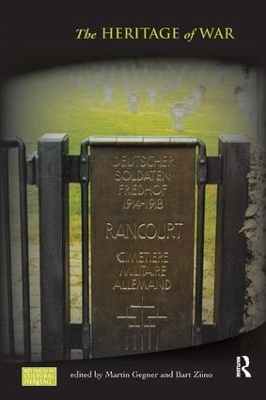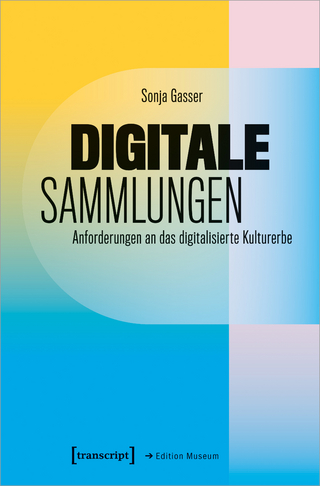
The Heritage of War
Routledge (Verlag)
978-0-415-59329-8 (ISBN)
From colonizing violence in South America to the United States’ Civil War, the Second World War on three continents, genocide in Rwanda and continuing divisions in Europe and the Middle East, these studies bring us closer to the very processes of heritage production. The Heritage of War uncovers the histories of heritage: it charts the constant social and political construction of heritage sites over time, by a series of different agents, and explores the continuous reworking of meaning into the present.
What are the forces of contingency, agency and political power that produce, define and sustain the heritage of war? How do particular versions of the past and particular identities gain legitimacy, while others are marginalised? In this book contributors explore the active work by which heritage is produced and reproduced in a series of case studies of memorialization, battlefield preservation, tourism development, private remembering and urban reconstruction. These are the acts of making sense of war; they are acts that continue long after violent conflict itself has ended.
Martin Gegner is visiting professor at Universidade de São Paulo, Brazil, and director of the German Academic Exchange Service’s (DAAD) centre in this city. His research interests lie in Politics and Sociology of Urban Heritage, Cultural Theory and Political Philosophy. Bart Ziino is a lecturer in history at Deakin University, Australia. His research interests include memory and commemoration of war, and private experiences of Australian civilians during the First World War. Recent publications include A Distant Grief: Australians, War Graves and the Great War (2007).
Introduction. The Heritage of War: Agency, Contingency, Identity Part I: Remembering and Representing War 1. Hellfire Pass Memorial Museum, Thai-Burma Railway 2. Victory and defeat at Ðiện Biên Phủ: memory and memorialization in Vietnam and France 3. War monuments in East and West Berlin: Cold War symbols or different forms of memorial? 4. ‘Inevitable erosion of heroes and landmarks’: an end to the politics of Allied war memorials in Tarawa? 5. Commemorating the American Civil War in National Park Service battlefields Part II: Identities 6. ‘Our ancestors the Incas:’ Andean warring over the conquering pasts 7. ‘We are talking about Gallipoli after all’: contested narratives, contested ownership and the Gallipoli Peninsula 8. Narrating genocide on the streets of Kigali 9. Remembering and forgetting: South Asia and the Second World War Part III: The politics of reconstruction 10. Reconstruction over ruins: rebuilding Dresden’s Frauenkirche 11. Symbols of reconstruction, signs of divisions. The case of Mitrovica, Kosovo 12. Reconstruction as exclusion: Beirut
| Erscheint lt. Verlag | 16.8.2011 |
|---|---|
| Reihe/Serie | Key Issues in Cultural Heritage |
| Zusatzinfo | 5 Line drawings, black and white; 37 Halftones, black and white; 1 Illustrations, black and white |
| Verlagsort | London |
| Sprache | englisch |
| Maße | 156 x 234 mm |
| Gewicht | 476 g |
| Themenwelt | Kunst / Musik / Theater |
| Reisen ► Reiseführer | |
| Geisteswissenschaften ► Archäologie | |
| Geisteswissenschaften ► Geschichte ► Hilfswissenschaften | |
| Sozialwissenschaften ► Politik / Verwaltung | |
| ISBN-10 | 0-415-59329-8 / 0415593298 |
| ISBN-13 | 978-0-415-59329-8 / 9780415593298 |
| Zustand | Neuware |
| Haben Sie eine Frage zum Produkt? |
aus dem Bereich


